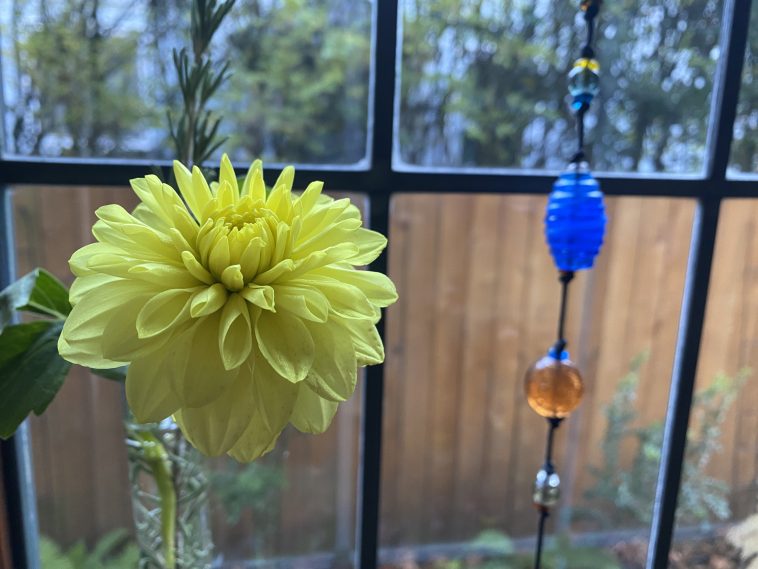The Apostrophe Blog
White-gray afternoon, waning days of December, heading toward the end of 2023. The dahlia blooms are long gone, their tubers now safely tucked under thick plastic and bark mulch to (hopefully) survive any onslaught of winter weather we might still get. Light rain is predicted for the next hour, tapering off to a slight drizzle. Every now and then, the wind stirs and the branches of the Japanese maple as well as the slowly bronzing leaves of snow-leaf hydrangea in our front yard garden have their turns at being riled up.
At Leadbetter State Park, hiking on Tuesday, every trail down to the Willapa Bay’s marshy shore as well as the Pacific Ocean beaches on the western side was closed to foot traffic—high water flooding the trails. We went as far as we could, backed up, reconnoitered, found another way around through the salal, the native huckleberry, the deer and lady ferns, the kinnick-kinnick. An alternative Xmas on the Long Beach Peninsula where it doesn’t take long to feel (gratefully) far from the madding, maddening crowds.
2023 has been a year of (intentionally) staying closer to home, tending our gardens—vegetables in the Woodlawn Community Garden plot a mile from our house, the seventy-plus dahlias and other perennials in our front yard, ferns and hostas in the shade habitat out back. At this time when so many in the world are struggling and suffering, when so many are in peril, we remain humbled and grateful for our lives of abundance, beauty, and peace. Still I find myself wondering—where do I truly want/need to go in this beleaguered, burning-up, crazy-crowded, often angry world? Is all the effort—and the attendant carbon footprint—worth it let alone defensible? And how do you decide—do the rules apply to all of us or only the unlucky, marginalized, disregarded few? How do you make your way in a world where, more and more, so much of what happens, what passes for acceptable behavior goes against your very grain?
I found this quote by the Romanian philosopher-essayist, Emil Cioran, in late November (probably in something I was reading at the time) and it spoke to me enough then that I took the time to write it down:
“When you no longer agree with the world, neither in thought nor in heart, run and don’t stop, so that the rhythm of the steps surrounds you and makes you forget that nature is made of tears. Otherwise you will be a suicide gardener again.”
Then there is James Baldwin—whose wisdom and prescience only seem to get better with age:
“Perhaps the whole root of our trouble, the human trouble, is that we will sacrifice all the beauty of our lives, will imprison ourselves in totems, taboos, crosses, blood sacrifices, steeples, mosques, races, armies, flags, nations, in order to deny the fact of death, the only fact we have.”
Our human troubles of late seem magnified and metastatic, exponential and deadly. They seem preordained—intractable, inconsolable, insurmountable. So much bother we clearly have been making for our sad, mad, self-centered selves and those around us. So much cruelty, mayhem, and abject harm that I find it a challenge to locate even the tiniest reservoirs of optimism and hope. Perhaps the only sane response is to stay put for just a bit, and to sit still. To breathe in and breathe deep—gratitude, kindness, grace. To believe an alternative can and will be possible. To dream, simply dream. Forgive, simply forgive?
- Don’t Fence Me In! - July 5, 2025
- Nothing to Celebrate Today… - July 4, 2025
- Call It By Its Name - July 2, 2025

